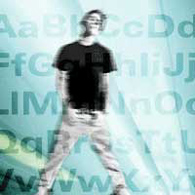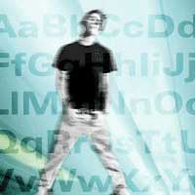Insanity is hereditary, you get it from your kids - or so the saying goes. It's a saying my mother likes a lot. Personally, I wish partying was hereditary too, because then I could take mum out with my friends, and show her that gay life is more than just HIV and AIDS and condoms and all the clinical hoo-hah that flashed through her mind and stayed there, when I outed myself three years ago.

That's a very strange point to have arrived at - almost as though we need our parents to undergo a little lifestyle training in being gay, just so they can relate to us as people. And we need parents in general, not just parents of queer children, to realise that whatever lifestyle their child follows, it may not be an issue of choice - and even if it is, there's nothing they can do about it, so it's not their place to worry about. Especially not if worrying about it leads to them losing touch with their children in the first place.
My mother just came back from seeing the play Corpus Christi in Melbourne, which portrays Christ as gay. She said something to me that's very revealing: she started out seeing eleven gay people on the stage. At the end of the play, something had changed: she no longer saw them as gay people, just as people. In print, it's the tiniest difference - three letters - but on stage, in the spotlight, in film, in newsprint, in our parent's minds - it's a really significant leap.
How then can we help 're-educate' our parents? If you're lucky, you have understanding parents, or parents who are willing to understand if helped. Sitting down with your parents and just talking about it, normalising the idea, making it something you can talk about in general conversation without dressing it up as Talking About Being Gay, that's a great start. For many though, this is not an option; their parents' blinkers are too firmly attached. Removing them may require professional help. Family counselling can help if it's available and your parents are receptive to it. But it's a pretty lonely battle to be fighting - parents are the people we're taught from birth to obey and accept.
There are resources available if you're in a similar situation - PFLAG and numerous other organisations offer how-to guides to coming out, etc. Maybe these make sense to you, maybe you work differently - if it helps, use it.

At the moment, when someone outs themselves as gay or lesbian or bisexual or in any way queer, that becomes an issue for the queer movement - queer groups provide the resources and support and information and exposure, and if they're lucky, one family changes and learns to accept. This is too haphazard a battle, though - and it's a battle that must be fought again and again to 're-educate' a straight family when their child comes out to them as queer. That's a big weight to place on the shoulders of someone who's just stepping into the identity that their sexuality and society has extended in ways they may not be certain or happy about.
There is a big taboo about converting straight people to homosexuality. (Personally I think the chances of that actually happening are as good as your chances of getting kicked to death by a duck.) What we do need to do is evangelise a little about gay life for the benefit of the straight population. Shows like Will & Grace, poetry like Dorothy Porter's, media influences like these are important. They help send the message that being gay is not about social isolation, and they help break the silence about gay people in society. They reach a mostly straight society - but that's a good thing. It's where change is most needed.
If you haven't come out to your parents and are considering doing so, you are encouraged to read PFLAG's brochure on Coming Out To Your Parents.











 Printable Version
Printable Version










Reader's Comments
Be the first to leave a comment on this page!
Please log in to use this feature.